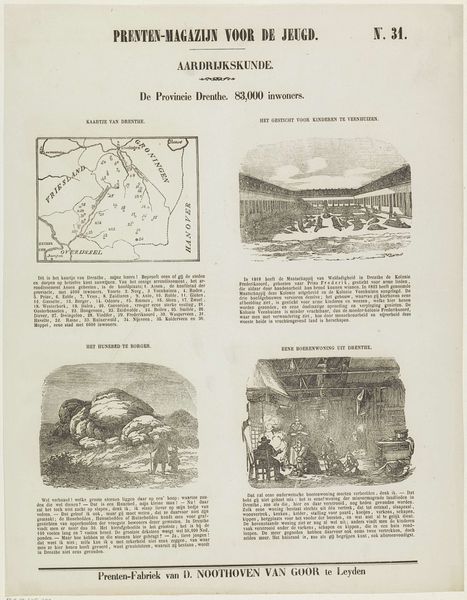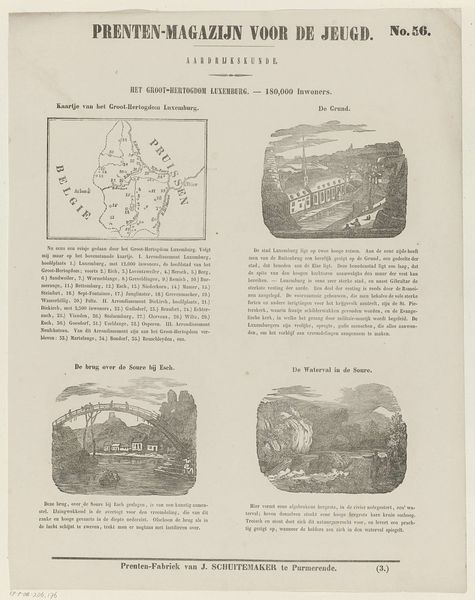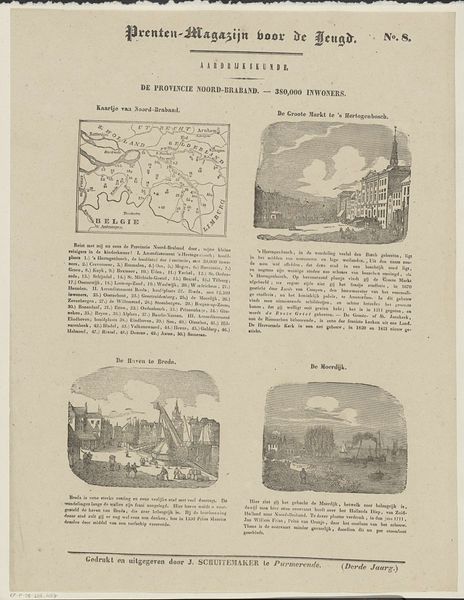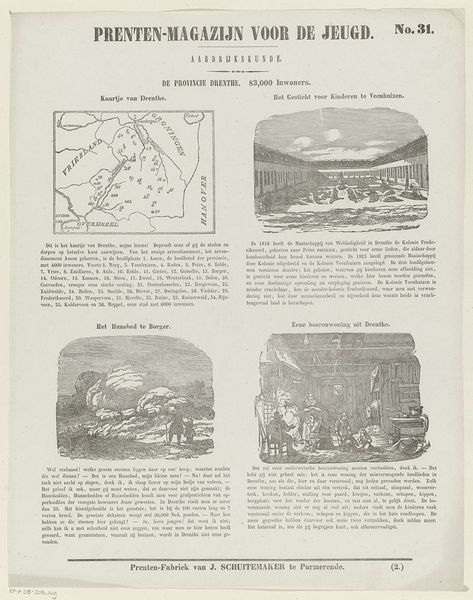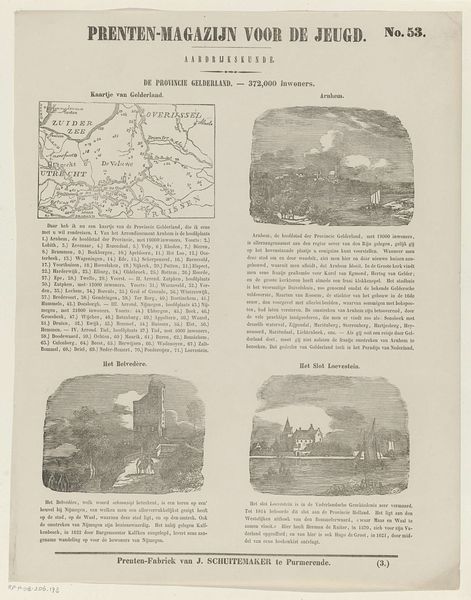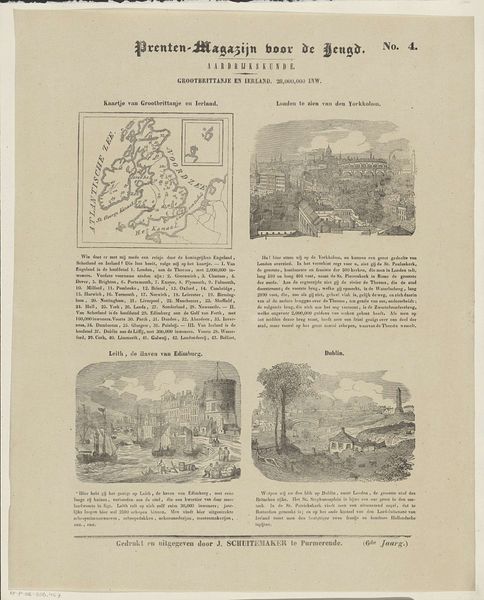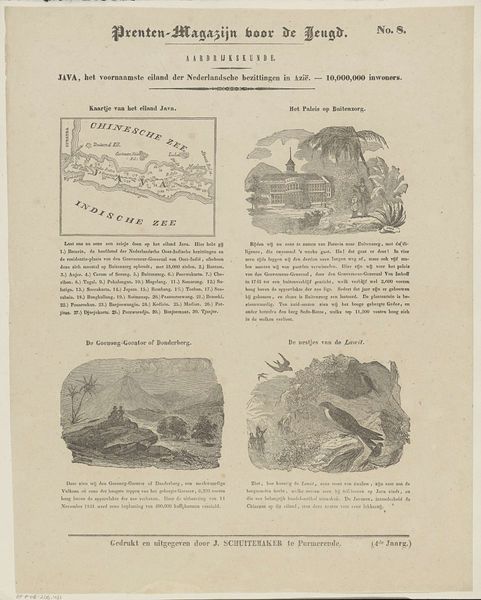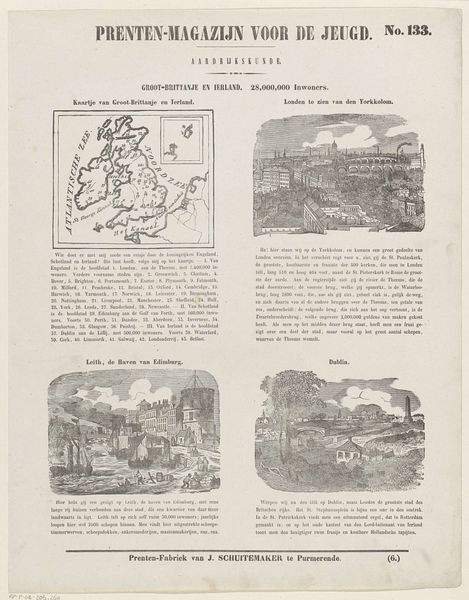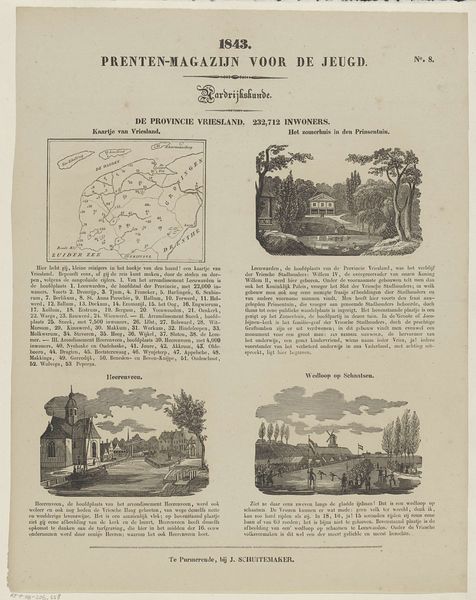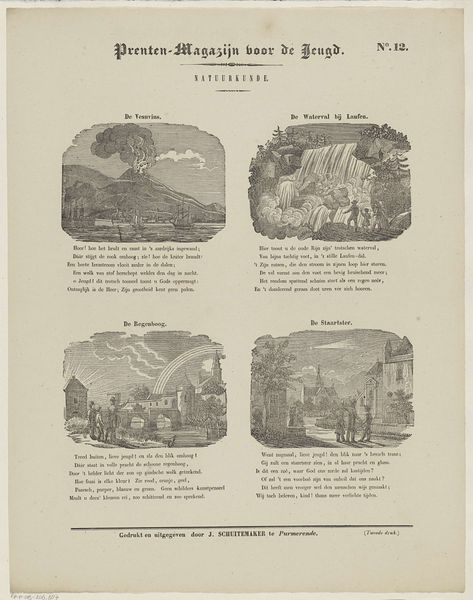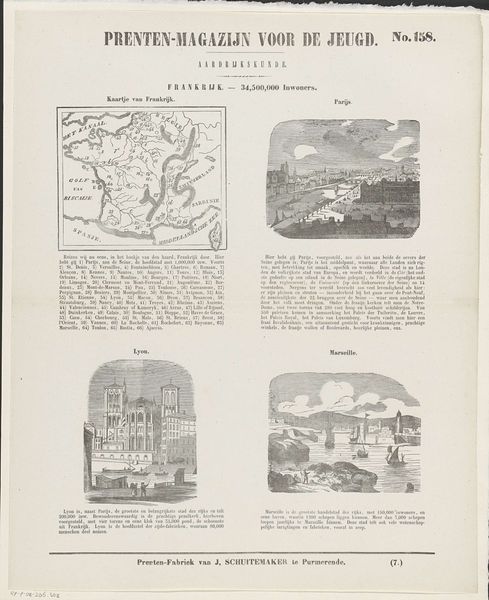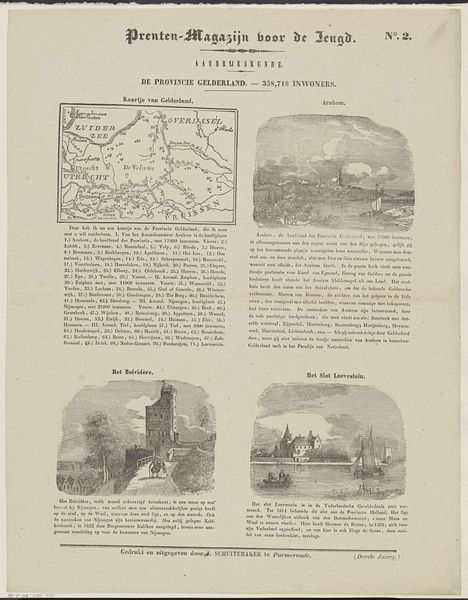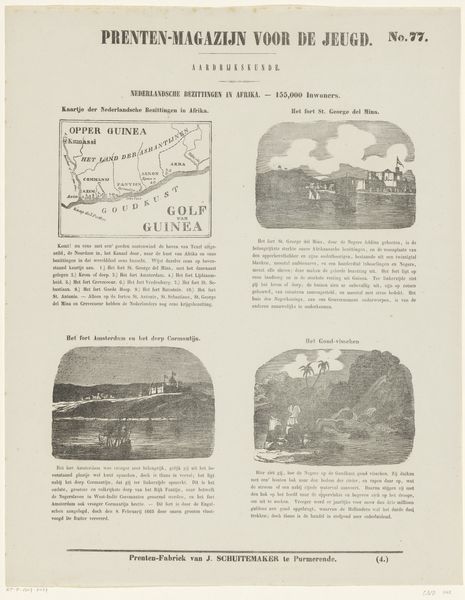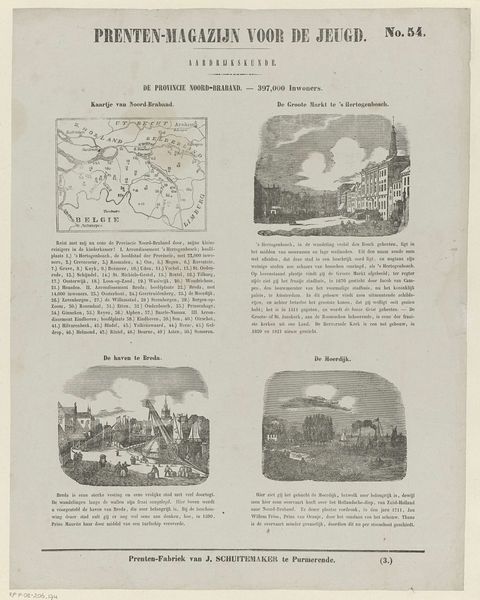
print, paper, engraving
# print
#
landscape
#
paper
#
genre-painting
#
engraving
Dimensions: height 430 mm, width 335 mm
Copyright: Rijks Museum: Open Domain
Editor: Here we have "De provincie Drenthe. 77,769 inwoners," a print made by Jan Schuitemaker in 1843. It looks like an informational sheet, combining maps, landscape scenes, and genre painting through engraving. What's striking to me is the depiction of both rural landscapes and what seems to be an institution. How do you interpret this work? Curator: This piece offers a fascinating glimpse into 19th-century Dutch society and its efforts to address poverty and social reform. Let's consider the title itself, which provides specific demographic data alongside visual representations of the Drenthe province. What do you think the juxtaposition of statistical information with images of both natural landscapes and institutional spaces suggests about the artist’s, or perhaps the publisher's, intent? Editor: I suppose it’s about categorizing, understanding, maybe even controlling a specific region and its population through knowledge. But why include genre scenes too? Curator: Exactly. Notice how the inclusion of scenes of the "Het Gesticht voor kinderen te Veenhuizen," seemingly an institution for children, and the "Eese Boereawoning," depicting a peasant dwelling, serve to highlight particular societal concerns of the time. It invites us to consider themes of social order and perhaps hints at early attempts to "correct" social ills by placing these images side-by-side with the provincial map. How does this visual organization make you think about power structures within 19th-century Dutch society? Editor: I guess by showing the province, and who lives there, and how, it's a way of making a statement about how things are, or how they *should* be. It really prompts questions about who has the authority to define and represent a community. Curator: Indeed. By carefully examining these choices we start to perceive the complex relationship between art, information, and social engineering.
Comments
No comments
Be the first to comment and join the conversation on the ultimate creative platform.
